There’s a lot of debate about lawns vs gardens. Which one is better for you and your home? Is there even a clear winner, or are they both winners in their own ways? In this neat comprehensive guide, we will answer all of your questions about lawns and gardens so that you can make the best decision for your home!
Definition of a Garden
A garden is a planned space, usually outdoors, set aside for the cultivation of plants and other forms of nature. Gardens are often designed using a variety of different aesthetics in mind, such as beauty, utility, or pleasure. A variety of different elements can be used in gardens, including water features, flowers, trees, and shrubs.
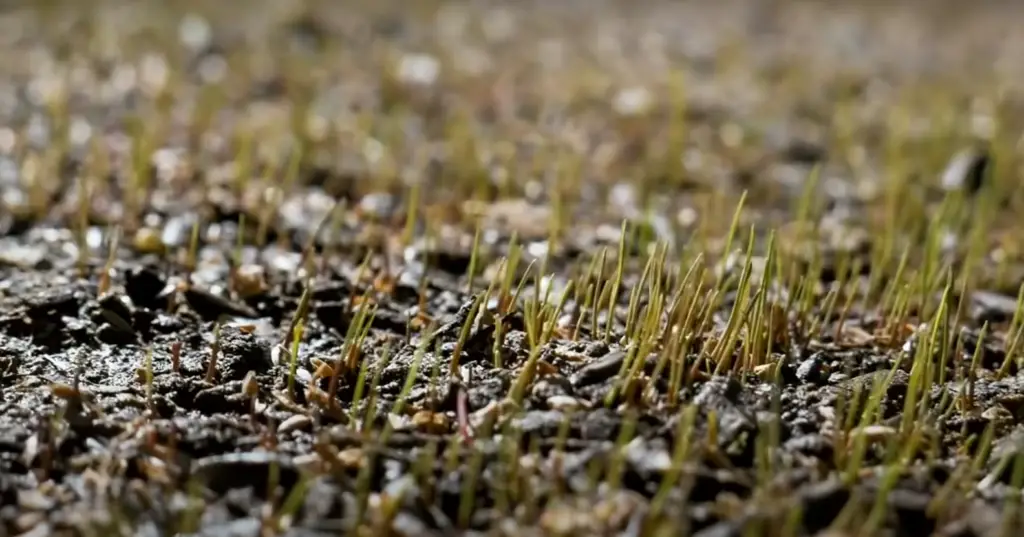
There are many different types of gardens, including but not limited to: fruit and vegetable gardens, flower gardens, rock gardens, water gardens, meditation gardens… the list goes on. In general though, most home gardens will likely fall into one or more of these categories: container gardening (plants grown in pots or other containers), raised bed gardening (a type of container gardening where the planting area is raised above ground level), or traditional row gardening (plants arranged in straight rows).
Definition of a Lawn
Most people think of a lawn as an expanse of grass surrounding a home. But a lawn is actually any area of land planted with grasses or other low-growing plants, usually for aesthetic purposes. Lawns are common in residential yards, parks, and golf courses. They can be either natural or man-made.
They have a growth period during the warm months of spring and summer.
Mixed-species lawns containing both cool-season and warm-season grasses are also possible, but they may require more maintenance than pure stands of one species or the other. [1],[2]
What Can a Garden Be Used for?
Gardens can be created with some useful purposes in mind, so let’s go over them.
Growing your own vegetables or fruits
This is probably the most popular option and for good reason. Homegrown produce often tastes better than store-bought options, and you’ll have the satisfaction of knowing that you grew it yourself! Not to mention, it can save you money in the long run.
If you’re interested in this option, do some research on what vegetables or fruits grow well in your area. You’ll also want to make sure you have enough space for a garden bed – typically, each plant needs about a square foot of space.
Once you’ve got that figured out, get started on preparing your soil. This will ensure that your plants have the best chance at thriving. After that, it’s time to start planting!
When planning a veggie garden, keep in mind the shadows that will be cast by nearby buildings or trees throughout the day. Different vegetables need different amounts of sunlight, so it’s important to place them in an area that gets the right amount of light for their needs.
Growing flowers
Another popular option is to create a flower garden. This can add some beautiful color to your yard and be a great way to attract bees and other pollinators.
That way, you’ll always have something blooming in your garden!
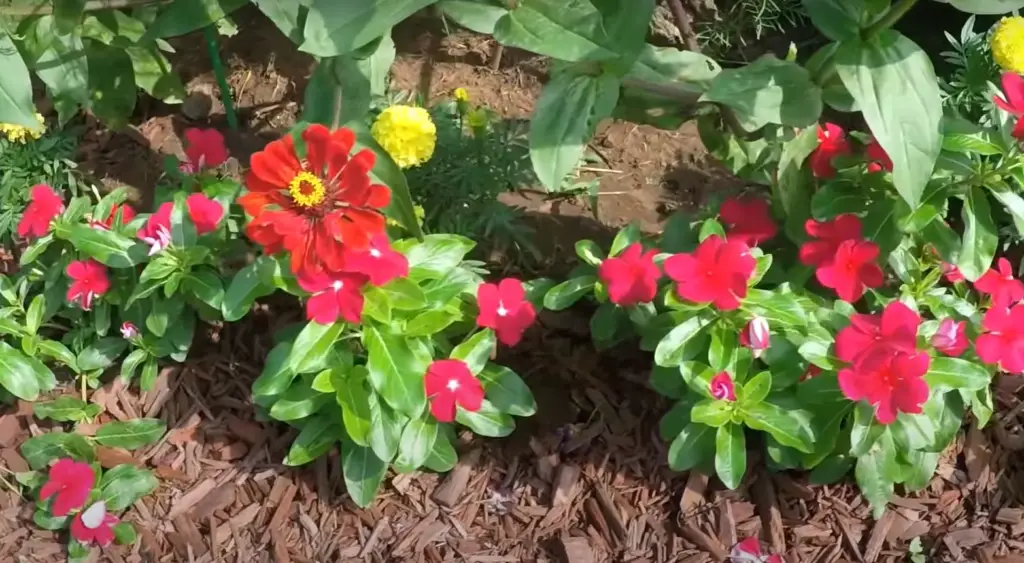
There are many other options for gardens, including herb gardens, rain gardens, and rock gardens. No matter what type of garden you choose, remember to consider the amount of sunlight it will get, as well as how much water your plants will require. [3]
What Can Lawn Be Used for?
For the most part, lawn is used for two main purposes: resting spot and aesthetic appeal. But let’s see how exactly you can utilize your home lawn.
As a playground
If you have kids, then you know how important it is to have a safe place for them to play. And what could be a safer place than your own backyard? A lawn is the perfect spot for your kids to run around and expend all that energy. Plus, you can easily keep an eye on them while they’re playing.
As a place for relaxation
After a long day of work, there’s nothing better than coming home to a peaceful and relaxing environment. And your lawn can provide just that. Sit down on a comfortable lawn chair and enjoy the fresh air while surrounded by the beauty of nature. You can even add some scented candles or an essential oil diffuser to enhance your relaxation experience.
If you have guests over, they can sit on the grass instead of your furniture. This way, you don’t have to worry about spills or stains on our indoor furniture.
Spot for decorations
Your lawn is also the perfect place to show off your creative side. After all, it is an extension of your home. So go ahead and add some personal touches to make it your own. You can use lawn decorations to express your unique style or even show off your favorite sports team. [2]
Maintaining a Garden
Gardens are often thought of as high-maintenance, but this doesn’t have to be the case! With a little bit of planning and some basic knowledge, anyone can easily maintain a beautiful garden. You really want to follow two care plans.
Fertilization
Fertilizing is important to maintain the health of your garden.
Fertilizing in the spring will give your plants a boost of nutrients to start the growing season. Fertilizing in the fall will help your plants store energy and nutrients over the winter so they can come back strong in the spring.
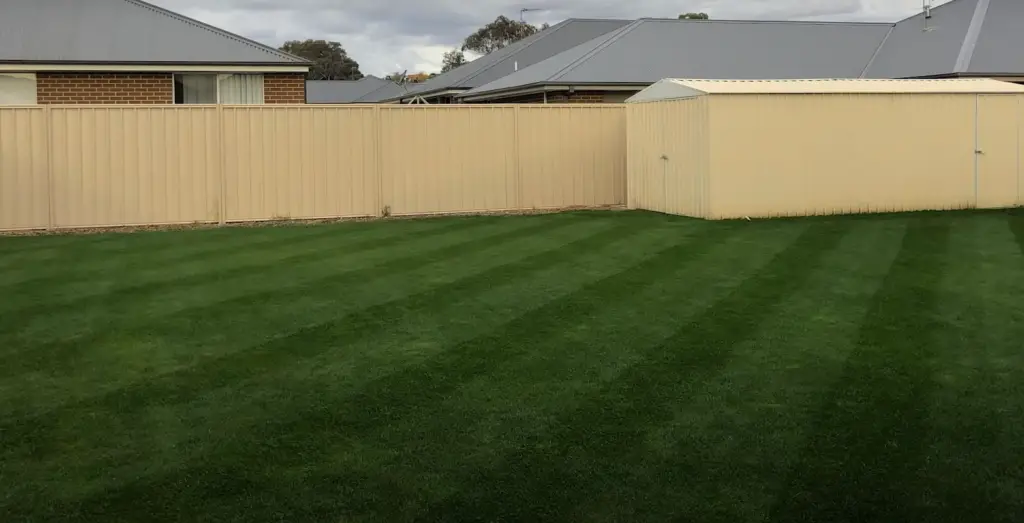
You should also be sure to add compost to your garden beds regularly. Compost is full of nutrients that are essential for plant growth. Adding compost to your garden beds will help ensure that your plants are getting everything they need to thrive.
Plant care
Caring for your plants is essential to keeping your garden looking its best. You should water your plants on a regular basis, depending on the needs of the plant. Some plants need more water than others, so be sure to check the care instructions for each plant.
You should also deadhead spent flowers and trim back any overgrown foliage. Deadheading spent flowers will encourage new growth and keep your garden looking tidy. Trimming back overgrown foliage will help prevent disease and pests from taking hold in your garden.
Don’t forget about pests! Be sure to check your plants regularly for pests and diseases. If you find any, be sure to treat them immediately. The method you use will depend on the type of pest or disease you’re dealing with.
But if you’re growing vegetables, you may want to avoid using chemical pesticides. Instead, try using natural methods like companion planting or creating a habitat that attracts beneficial insects. [4]
Maintaining a Lawn
Even though lawns require less maintenance than gardens do, you still should take care of it.
Mowing the Lawn
The most basic and important lawn care task is mowing the lawn. Mowing keeps your grass healthy by removing excess growth and promoting new growth. It also makes your lawn look neat and tidy.
There are a few things to keep in mind when mowing your lawn:
- Mow when the grass is dry to avoid clumping and uneven cuts.
- Sharpen your blades regularly to ensure a clean cut.
- Don’t cut more than one-third of the grass height at a time.
Lawns need to be mowed on a regular basis, usually once a week, in order to stay healthy.
Watering and fertilizing
Lawns also need to be fertilized periodically to maintain their health and vigor. The amount of fertilizer you’ll need depends on the type of grass you have, as well as the climate and soil in your yard. In general, you should fertilize your lawn about four-five times a year: once in early spring, once in late spring, once in summer, and once in fall.
Water is another important factor in maintaining a healthy lawn. Grass needs about an inch of water per week, either from rainfall or from irrigation. If you live in an area with high summer temperatures, you may need to water your lawn more often to keep it looking its best. [2],[5]
Which One is Better in the End?
We have highlighted all the necessary information about both lawns and gardens. Now it’s time for us to sum up the benefits of each!
Benefits of a garden
If you are someone who likes to get your hands dirty, then a garden is definitely the better option for you. With a garden, you have complete control over what gets planted and where. You can also choose to grow vegetables, fruits, and herbs – giving you the opportunity to save money on groceries. Not to mention, gardens are a great way to get some exercise in and enjoy the outdoors.
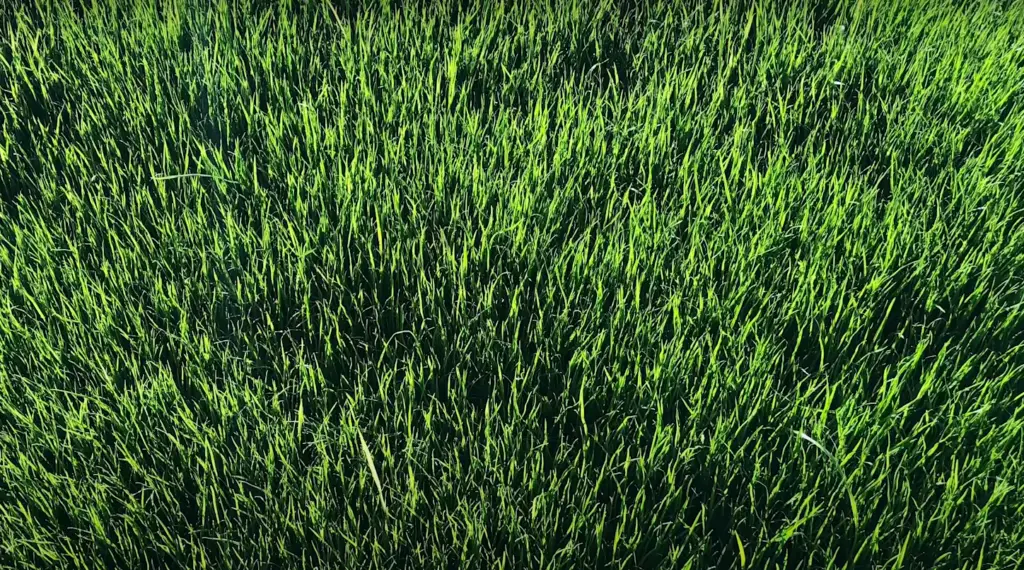
There are also many mental health benefits associated with gardening. Studies have shown that spending time in nature can help reduce stress, anxiety, and even depression. So if you’re looking for a way to improve your mood and overall well being, consider starting a garden!
Benefits of a lawn
Lawns have a few advantages over gardens as well. For one, they’re much easier to maintain. All you really need to do is mow and water them on a regular basis. Lawns also tend to be more durable than gardens, so they can withstand heavy foot traffic (which is great if you have kids or pets).
Another benefit of lawns is that they can actually increase the value of your home. If you’re thinking of selling in the future, having a well-manicured lawn will make your property more appealing to buyers. In addition, you might be interested in how to describe a garden.
Comparison of Lawn vs. Garden: Which is Better?
Lawns and gardens are both popular outdoor spaces that can add beauty and functionality to a home. While lawns are typically made up of grass and are designed for recreation and relaxation, gardens are more diverse and can include a variety of plants, vegetables, and fruits. In this table, we will compare various indicators to determine which is better: a lawn or a garden.
| Indicator | Lawn | Garden |
|---|---|---|
| Water Usage | High | Low |
| Maintenance | High | Varies |
| Biodiversity | Low | High |
| Food Production | None | High |
| Aesthetics | High | High |
The table compares several indicators of lawns and gardens, including water usage, maintenance, biodiversity, food production, and aesthetics. Lawns typically require more water and maintenance than gardens, but they also provide a more uniform and manicured look. Gardens, on the other hand, are more diverse and can support a wider range of plant and animal life, as well as provide a source of fresh produce. Both lawns and gardens can be aesthetically pleasing, depending on the design and upkeep. Ultimately, the decision to choose a lawn or garden will depend on personal preference, available space, and intended use.
FAQ
What type of garden is best?
This is a difficult question to answer. It depends on many factors, such as climate, soil type, and personal preference. In general, however, raised beds are considered to be the best type of garden. They are less likely to compact the soil, which means that your plants will have better drainage and aeration. They also make it easier to control weeds and pests.
In-ground gardens are also a good option, but they can be more difficult to maintain. If you have the time and patience, an in-ground garden can be just as beautiful and productive as a raised bed garden.
What’s the difference between a garden and a field?
A garden is typically planted with a variety of flowers, vegetables, and other plants, while a field is usually just one type of grass or crop. Gardens are usually smaller than fields and require more regular maintenance.
Fields can be used for grazing animals or growing crops, while gardens are mostly aesthetic. That being said, many people do use their gardens to grow food!
What are the benefits of having a lawn?
There are many benefits to having a lawn. A well-maintained lawn can increase your home’s curb appeal and value, provide a place for outdoor recreation and gatherings, and help improve the air quality in your community. Lawns also help protect our environment by reducing erosion, absorbing carbon dioxide and other pollutants, and providing habitats for beneficial insects and wildlife.
So, what’s the best way to achieve a healthy lawn? The answer may surprise you: it’s not necessarily by using more fertilizer or chemicals. In fact, too much of these can actually harm your lawn and the environment. The key is to provide your lawn with the right combination of sunlight, water, and nutrients. With a little care, you can have a lush, green lawn that will be the envy of your neighborhood.
What are the benefits of having a garden?
There are many benefits to having a garden, including:
- The ability to grow your own fruits and vegetables
- The satisfaction of being able to see the fruits of your labor
- The opportunity to get outside and enjoy the fresh air
- The chance to connect with nature
Gardens can also provide a sense of peace and relaxation, and can be a great way to de-stress after a long day.
Are there any downsides to having either a lawn or a garden?
Yes, there are some downsides to having a lawn or garden. For example, gardens can be time-consuming to maintain and may require more watering than a lawn. Lawns can be difficult to mow if they’re too big, and may need fertilizing and other treatments to stay healthy.
It really depends on your personal preferences as to whether a lawn or garden is better for you. If you have the time and patience to maintain a garden, then it can be a great way to relax and enjoy nature. However, if you prefer a low-maintenance option, then a lawn may be better for you. Ultimately, it’s up to you to decide what works best for your lifestyle!
Do you have to fertilize your garden?
No, you don’t have to fertilize your garden. However, if you want to achieve lush growth and bountiful harvests, adding fertilizer to your soil can give your plants the nutrients they need to thrive. Fertilizing early in the growing process will give your plants a major growth boost.
There are many different types of fertilizer available on the market, so it’s important to choose one that’s best suited for your particular type of garden. If you’re not sure which fertilizer to use, ask a gardening expert at your local nursery or home improvement store.
How often do you have to water your garden?
This really depends on the type of plants you have, the climate you live in, and how big your garden is. Generally speaking, most gardens need to be watered at least once a week during the growing season. If it’s particularly hot or dry, you may need to water more frequently.
Overwatering can be just as bad as not watering enough, so it’s important to get to know your plants and pay attention to their individual needs. If you see wilting leaves or brown patches, that’s usually a sign that they need more water. Conversely, if you see yellowing leaves or root rot, that means they’re getting too much water.
Another thing to keep in mind is that garden hose water isn’t always the best for plants. If you have city water, it likely contains chlorine and other chemicals that can be harmful to plants. Consider using rainwater or distilled water instead.
If you’re not sure how often to water your garden, err on the side of caution and give it a good soaking once a week.
What kind of plants and flowers do you like to grow in your garden?
There are so many different types of plants and flowers that you can grow in your garden! Some people like to grow roses, while others prefer daisies. You can really grow any type of plant or flower in your garden that you want!
If you’re not sure what kind of plants or flowers you want to grow in your garden, a great way to figure it out is by looking online at pictures of gardens. This can give you some great ideas for what kinds of plants and flowers you might want to grow in your own garden!
If you decide to grow your plants and flowers from seed, there are a few things that you need to keep in mind. First, it’s important to start with fresh seeds. Seeds that are old or have been stored for a long time might not germinate as well.
Another thing to keep in mind when growing your plants and flowers from seed is to make sure that you plant them at the right time of year. Some plants and flowers need to be planted in the spring, while others do better if they’re planted in the fall.
Do you think there’s an advantage to having a lawn instead of a garden?
While some people may think that having a lawn is better because it requires less maintenance, others believe that gardens are a more efficient use of space. Ultimately, the decision of whether to have a lawn or garden comes down to personal preference. However, there are a few factors to ponder before you make your final choice.
For instance, if you live in an area with a lot of rainfall, you may want to consider having a garden instead of a lawn. This is because gardens drain better than lawns and are less susceptible to flooding. Additionally, gardens require less water than lawns, so they’re a more drought-tolerant option.
If you have children or pets, a garden rather than a lawn is another option. Gardens are typically fenced in, which can help keep your children and pets safe. Additionally, gardens are usually filled with mulch or other soft materials, which can cushion falls and prevent injuries.
How do you choose what plants to put in your garden?
It really depends on what your interests are and what you’re looking to get out of your garden. If you’re interested in growing vegetables, then you’ll want to choose plants that will produce a good yield. If you’re more interested in the aesthetics of your garden, then you can choose plants that are more visually appealing.
The type of soil in your garden will also dictate what types of plants will grow best. For example, if you have sandy soil, then cacti and succulents would be a good choice. If you have clay soil, then you might want to consider planting shrubs or trees.
The climate in your region will also play a role in what types of plants will do well in your garden. If you live in an area with a lot of rainfall, choose plants that can tolerate wet conditions. If you live in a desert climate, then select plants that can survive in dry conditions.
What kind of pests or diseases can attack your garden?
There are all sorts of pests and diseases that can attack your garden. Some common ones include aphids, caterpillars, slugs, and snails. These pests can cause a lot of damage to your plants, so it’s important to be on the lookout for them.
If you see any of these pests in your garden, you should try to get rid of them as soon as possible. You can do this by hand-picking them off of your plants or using a pesticide.
Pests and diseases are just one of the many things that you have to worry about when gardening. It’s important to be prepared for them so that they don’t ruin your garden.
Is mowing part of gardening?
No, mowing is not part of gardening. Mowing is a separate activity that you would do to upkeep your lawn. In general, gardens do not need to be mowed unless the plants are very tall.
So, what’s better – a lawn or a garden? It really depends on what you’re looking for and what kind of maintenance you’re willing to do. If you want a low-maintenance outdoor space, then a lawn might be better for you. But if you’re interested in growing plants and flowers, then a garden would probably suit you better. Whichever route you choose, make sure to do your research so that you can create an outdoor space that you love.
Useful Video: Lawn vs. Garden
Conclusion
So, which is better? Lawns or gardens? The answer may depend on your personal preferences and the amount of time and effort you’re willing to put into maintenance. But both lawns and gardens can be beautiful and enjoyable additions to your home. With a little bit of care, you can have a gorgeous garden or a healthy lawn that will be the envy of the neighborhood.[1]
References:
- https://www.askdifference.com/lawn-vs-garden/
- https://www.mynewsdesk.com/au/fox-mowing/pressreleases/difference-between-garden-maintenance-and-lawn-maintenance-1470820
- https://www.greenamerica.org/blog/climate-victory-garden-better-than-lawn
- https://salisburylandscaping.ca/blog/why-when-and-how-to-apply-fall-fertilizer/
- https://emoyer.com/best-time-to-fertilize-your-lawn/





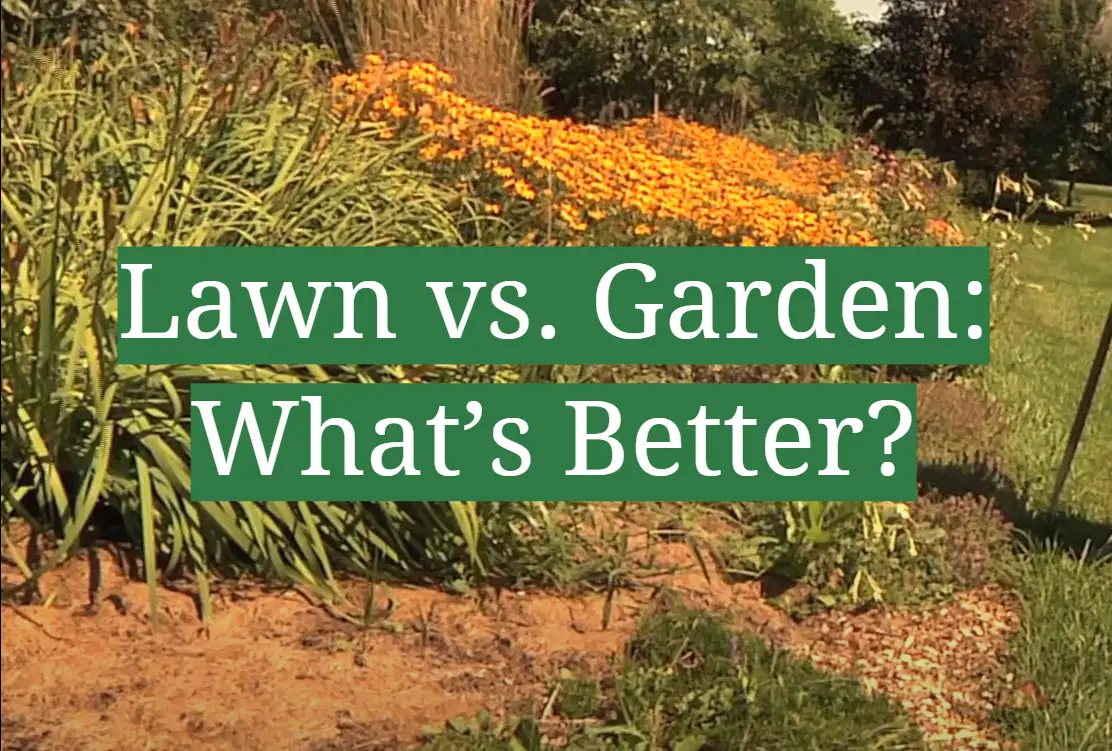

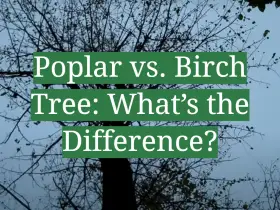
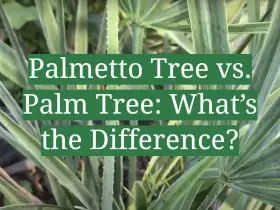
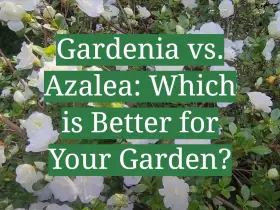
Leave a Reply
View Comments